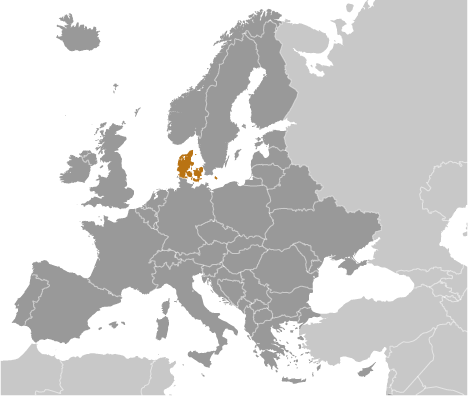HISTORICAL BACKGROUND
The first limited act on access to information in Denmark was adopted in 1964.(1) In 1970, the Parliament approved the first comprehensive FOI law, the Act on Access of the Public to Documents in Administrative Files. The 1970 law was replaced in 1985 by the Access to Public Administration Files Act.(2)
It allows "any person" to demand documents in an administrative file. Authorities must respond as soon as possible to requests and if it takes longer than ten days they must inform the requestor of why the response is delayed and when an answer is expected.
The Act applies to "all activity exercised by the public administration" and to electricity, gas and heating plants. The Minister of Justice can extend coverage of the Act to companies and other institutions that are using public funds and making decisions on behalf of central or local governments. It does not apply to the Courts or legislators. Documents relating to criminal justice or the drafting of bills before they are introduced in the Folketing are exempt. Authorities receiving information of importance orally to a decision by an agency have an obligation to take note of the information.
The following documents are also exempted from disclosure: internal case material prior to a final decision; records, documents and minutes of the Council of State; correspondence between authorities and outside experts in developing laws or for use in court proceedings or deliberations on possible legal proceedings; material gathered for public statistics or scientific research; information related to the private life of an individual; and documents on technical plans or processes of material importance. Non-disclosure is also allowed if the documents contain essential information relating to the security of the state and defense of the realm, protection of foreign policy, law enforcement, taxation and public financial interests. Factual information of importance to the matter shall be released if it is included in internal case material or certain other exempted documents. Public authorities must release information if there is a danger to life, health, property or the environment.
An exemption for EU documents was removed in 1991. The law was also amended in 2000 to limit access to some information about government employees.
The Folketingets Ombudsman can review decisions and issue opinions recommending that documents be released or that the authority justify its decisions better.(3) The Ombudsman cannot order public authorities to act but its recommendations are generally followed.(4) It can also start its own investigations. The Ombudsman receives 200 to 300 complaints each year relating to access to records and decides against the public bodies in around fifteen percent of the cases. It takes three to five months for each decision. Decisions on access can also be appealed to the courts but this is rare.
The Government set up a Public Disclosure Commission in 2001 to review the Act and prepare a new law on access to information.(5) The Commission is considering the effects of new technologies, the role of other laws, the effect of restructuring on how government departments work, and the need for an independent oversight agency. It is being chaired by the Ombudsman and includes participation from government departments and users. It is expected to complete its review in 2007 and issue recommendations. A draft bill is not expected in the Parliament until 2008/09.
The Act on the re-use of public sector information to implement the requirements of the EU Directive on the re-use and commercial exploitation of public sector information (2003/98/EC) was adopted in June 2004.(6)
The Public Administration Act governs access to records where a person is party to an administrative decision.(7) It provides for greater access to records than under the Access Act.
The Act on Processing of Personal Data allows individuals to access their records held by public and private bodies.(8) It is enforced by the Datatilsynet (Data Protection Agency).(9)
The Act on the legal status of patients allows access for patients to their health records, unless consideration for the person requesting disclosure or for other private interests is of overriding importance.(10)
Denmark signed the Aarhus Convention in June 1998 and ratified and approved it in September 2000. The Access to Environmental Information Act implements the European Environmental Information Directive (90/313/EEC)(11) and was amended in 2000 to implement the Aarhus Convention.(12) A bill that would facilitate the forms of access is pending.
Under the Archives Act, most archives of public bodies are available after 30 years.(13) Archives containing personal information are kept closed for 80 years and those containing information relating national security and other reasons can be closed for varying times.
The Criminal Code prohibits the disclosure of classified information. An intelligence official, Major Frank Soeholm Grevil, was convicted and sentenced to six months imprisonment in November 2004 for revealing documents to journalists stating that the government had no evidence that there were weapons of mass destruction in Iraq. The two journalists were charged in April 2006 with "publishing information illegally obtained by a third party". The disclosure resulted in the resignation of Defense Minister Svend Aage Jensby in April 2004. Prime Minister Anders Fogh Rasmussen ordered that the reports be declassified saying, "a very extraordinary situation has arisen which has given rise to doubts about the government's credibility." Grevil has appealed his conviction.
Under the Home Rule Act, Greenland has a separate set of laws generally based on Danish law.(14) The 1994 Public Administration Act and the 1994 Access to Public Administration Files Act were inspired by Danish legislation as well as practice.(15)The 1998 Act on Archives provides access by the public to archives.(16)
2004 freedominfo.org Global Survey Results - Denmark
NOTES
1. The Law on Party Access in Administration 13 May 1964. See Hallo, ed., Access to Environmental Information in Europe: Denmark (Kluwer Law 1996).
2. Access to Public Administration Files Act. Act No. 572, 19 December 1985. http://www.privacyinternational.org/countries/denmark/dk-foi-85.doc
3. Homepage: http://www.ombudsmanden.dk/english_en/
4. Council of Europe, Responses to the Questionnaire on National Practices in Terms of Access to Official Documents - Denmark, Sem-AC(2002)002 Bil, 18 November 2002, p.188. See also Summaries of annual reports for reviews of recent cases.
5. COE report, Ibid, p. 223.
6. Act on the re-use of public sector information, nr. 596, 24 June 2005.
7. Act 571 of 19 December 1995.
8. The Act on Processing of Personal Data (Act No. 429 of 31 May 2000).
9. Homepage: http://www.datatilsynet.no/
10. Act 482 of 1 July 1998.
11. Act from the Ministry of the Environment on Access to Information on the Environment. No. 292 of 27 April 1994.
12. Act from the Ministry of Environment and Energy, Amending Certain Environmental Acts. No. 447 of 31 May 2000.
13. See presentation of Hanne Rasmussen, International Council of Archives, SPP Rome, February 2002.
14. Act No. 577 of 29 November 1978.
15. Act No. 8 of 13 June 1994 on Public Administration Act, Act No. 9 of 13 June 1994 on Access to Public Administration Files with later amendments.
16. Act No. 22 of 30 October 1998.





















